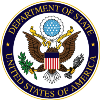The Arms Trade Treaty: Good for America, Good for American Business
By: Thomas Countryman, Acting Under Secretary of State for Arms Control and International Security at the U.S. Department of State
Last week, President Obama transmitted the Arms Trade Treaty to the Senate for its advice and consent. Despite the common misconception, the Arms Trade Treaty has nothing to do with domestic gun rights or the Second Amendment. Its purpose is to promote the national security and economic interests of the United States, including those of U.S. industry.
Terrorism, failed states, regional conflicts and, civil wars all threaten the national security of the United States and our allies. These threats are fueled in part by an unregulated international market for conventional weapons. The goal of the Arms Trade Treaty is to counter the unregulated spread of weapons that help fuel global instability.
Noting this goal, it was with the need to protect the best interests of the United States in mind that I led the U.S. delegation that negotiated the Treaty.
There are four crucial points to understand about the Arms Trade Treaty.
First, the Arms Trade Treaty does not regulate the domestic sale or ownership of guns. The Treaty deals strictly with the international transfer of conventional arms. In fact, the Arms Trade Treaty explicitly reaffirms the sovereign right of each country to decide for itself, within the framework of its own constitutional and legal requirements, how to manage conventional arms that are exclusively traded within its borders. The Treaty does not call for a domestic registry of gun owners. To the contrary, the Treaty explicitly recognizes that individuals may obtain, possess, and use arms for legitimate purposes. The ATT is fully consistent with the domestic rights of U.S. citizens, including those guaranteed under the Second Amendment to the U.S. Constitution.
Second, U.S. law already regulates international arms transfers. The United States is both the largest arms exporting nation in the world and the largest consumer of defense services and products. The United States has a fundamental security, moral, and commercial interest in the legitimate international trade in conventional arms. Because of this, we already have in place a comprehensive export control system — the most advanced in the world — to regulate arms transfers by U.S. industry. This export control system minimizes the spread of these deadly weapons to criminal organizations, terrorist networks, rogue states, and other bad actors. Through this process, U.S. agencies regularly review thousands of export license requests to ensure that U.S. exporters are providing conventional arms only to legitimate users for legitimate purposes. It’s one of the ways we work to prevent American-produced weapons from harming American soldiers on the front lines or from contributing to instability around the world.
Third, the Arms Trade Treaty helps ensure that the rest of the world lives up to U.S. standards on arms trading. Should the Senate provide its advice and consent to ratify the Arms Trade Treaty, we would not need to change any laws to bring this Treaty into effect. The measures the Treaty calls for have long been part of U.S. export control practices. However, not all countries have as effective export control mechanisms as we do. The Arms Trade Treaty can drive reform in those countries, or isolate them for failing to live up to international standards, thereby harming their international reputation. This reflects a powerful form of U.S. leadership, where countries around the world agree to rules and standards similar to our own because we’ve shown them to be necessary and effective.
Finally, far from limiting free commerce, the Arms Trade Treaty strengthens the legitimate international trade in conventional arms. As countries develop and report on their own national control systems, industry will have a clearer view of the international trading arena, fostering its ability to make competitive and responsible business decisions. Better information about business risks, such as where the weak links are and how to mitigate them, can only help facilitate U.S. defense exports. In short, the Treaty will provide U.S. industry with a more level playing field and predictable and stable environment in which to compete.
Of course, the Arms Trade Treaty is not a silver bullet that will magically solve all the problems of instability and armed conflict around the world. It will, however, help reduce the risk that international transfers of conventional arms will be used in the world’s worst atrocities including genocide and war crimes. It will help ensure that the rest of the world follows the same general rules as the United States and that legitimate industry is not disadvantaged by competing with black-market brokers.
As the largest exporter of arms, it is essential that the United States continue to have a voice in international discussions regarding the Arms Trade Treaty. The Treaty is already in force with 87 States Parties, and more are poised to join in the coming weeks. None of those countries can be expected to look out for American commercial or security interests as we would. Our voice needs to heard at those discussions, and it will be substantially amplified if we become a State Party by ratifying the Treaty.
Like any agreement focused on improving U.S. national security, the Arms Trade Treaty deserves to be the subject of a careful, fact-based discussion and debate. The Department of State stands ready to discuss the Treaty and its merits with both supporters and opponents of the Arms Trade Treaty.
This entry also appears on DipNote, the U.S. Department of State’s Official Blog.
